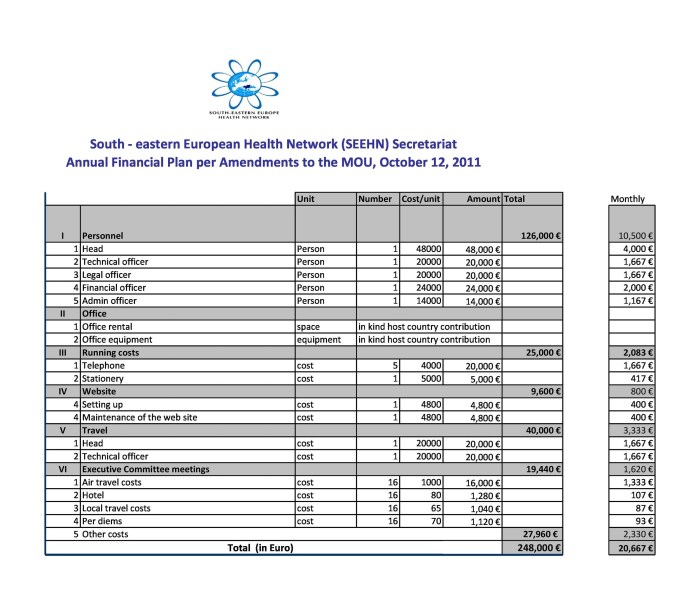
Business plan templates serve as essential tools for entrepreneurs and organizations, guiding them through the strategic planning process. These templates provide a structured approach to crafting a comprehensive business plan, ensuring that critical elements are not overlooked.
Understanding the various types of business plan templates available can help businesses tailor their strategies to specific industries, such as agriculture or consulting, while addressing unique challenges and opportunities. A well-designed template can streamline the planning process, making it easier to align goals with actionable steps.
Business Plan Templates Overview
Business plan templates are structured Artikels designed to assist entrepreneurs and businesses in drafting their business strategies effectively. They provide a framework that simplifies the process of planning by ensuring that all essential components are included. A well-structured business plan is vital for any organization, as it serves as a roadmap for achieving business goals and securing funding.There are various types of business plan templates available, each tailored for specific industries and purposes.
Some common types include traditional business plans, lean startup plans, and one-page business plans, each catering to different needs and stages of business development.
Types of Business Plan Templates
- Traditional Business Plan: A comprehensive format that includes detailed sections on market analysis, organizational structure, and financial projections.
- Lean Startup Plan: A streamlined version focusing on key elements like value propositions and customer segments, often used by startups.
- One-Page Business Plan: A concise template for quick overviews, ideal for entrepreneurs presenting their ideas to potential investors.
Business Accounting
Accounting is a critical aspect of running a successful business, as it provides insights into financial health and performance. A solid accounting plan comprises key components such as budgeting, forecasting, and financial reporting. Aligning these practices with financial goals ensures that businesses can track their progress and make informed decisions.Various tools and software options exist to assist in accounting processes, including QuickBooks, Xero, and FreshBooks.
These platforms streamline financial operations and enhance accuracy.
Key Components of an Accounting Plan
- Budgeting: Establishing a financial plan that Artikels expected revenues and expenditures.
- Financial Reporting: Regularly preparing statements that reflect the company’s financial status, including balance sheets and income statements.
- Forecasting: Predicting future financial outcomes based on historical data and market trends.
Accounting Payroll
An efficient payroll system is essential for managing employee compensation accurately and on time. Designing a payroll system involves several methods, such as selecting appropriate software, establishing pay periods, and automating tax calculations to minimize errors.Creating payroll templates can simplify the process, ensuring consistency and compliance with labor laws. Compliance is critical, as it helps businesses avoid legal issues and penalties associated with payroll mismanagement.
Steps for Creating Payroll Templates
- Determine Pay Structure: Define salary ranges, bonuses, and deductions for employee classifications.
- Choose Payroll Software: Select tools that automate calculations and integrate with accounting systems.
- Set Up Employee Data: Collect and input employee information needed for payroll processing.
Business Advertising
Advertising is a crucial component of business strategy, as it helps reach potential customers and build brand awareness. Creating effective advertising plans using templates can streamline the process and ensure all necessary elements are included.Measuring the effectiveness of advertising efforts is vital to understand return on investment and adjust strategies accordingly. Key elements should be included in an advertising template to enhance clarity and impact.
Elements of an Advertising Template
Key elements in an advertising template should include target audience, advertising objectives, budget, messaging, channels, and performance metrics.
Business Agriculture
Agricultural businesses face unique challenges that require tailored business plan templates. These templates should address specific factors, such as crop cycles, commodity prices, and environmental regulations.Best practices for financial forecasting in agriculture involve understanding market trends and creating flexible budgets that account for seasonal fluctuations.
Best Practices for Financial Forecasting in Agriculture
- Market Research: Conduct thorough research on commodity prices and demand.
- Flexible Budgeting: Adjust budgets based on seasonal and market changes to maintain financial health.
- Risk Management: Develop strategies to mitigate risks associated with weather and market volatility.
Architecture and Interior Design
For architecture and interior design firms, business plans must incorporate unique guidelines that reflect the creative nature of the industry. Project portfolios are essential in showcasing past work and attracting new clients, making them a key component of business planning.Identifying key market trends can help design firms remain competitive and innovative in their offerings.
Market Trends in Architecture and Design
- Sustainability: A growing demand for eco-friendly and sustainable building practices.
- Technology Integration: The use of advanced design software and virtual reality in project presentations.
- Customization: Increased client demand for personalized and unique design solutions.
Business Branding
Branding plays a significant role in a company’s growth and planning. It establishes a business’s identity and influences customer perception. Incorporating branding strategies into business plan templates helps align marketing efforts with overall business objectives.Developing a brand strategy involves understanding target demographics and crafting a cohesive message across all platforms.
Process of Developing a Brand Strategy
- Market Analysis: Research competitors and identify unique selling propositions.
- Brand Identity: Develop logos, color schemes, and brand guidelines that reflect the company’s mission.
- Consistent Messaging: Ensure all communications align with the established brand identity.
Business Travel
A comprehensive business travel plan template encompasses budgeting and scheduling to facilitate smooth travel operations. Travel policies are essential within a business plan, as they set expectations and guidelines for employees.Assessing travel-related risks and opportunities allows businesses to optimize travel expenses and enhance employee productivity.
Components of a Business Travel Plan Template
- Budgeting: Artikel expected travel costs including transportation, accommodation, and meals.
- Scheduling: Create itineraries that maximize efficiency and minimize downtime.
- Risk Assessment: Identify potential travel risks and develop mitigation strategies.
Career Advice

Incorporating career goals into a business plan is crucial for personal development and organizational success. Mentorship plays a significant role in career advancement, providing guidance and support.Identifying the skills needed for successful business management ensures that individuals are well-equipped to lead effectively.
Skills for Successful Business Management
- Leadership: Effective leaders inspire and motivate teams towards achieving common goals.
- Communication: Strong communication skills foster collaboration and clarity in the workplace.
- Financial Acumen: Understanding financial principles is essential for making informed business decisions.
Careers Employment
A clear employment strategy is vital for attracting and retaining talent in a competitive market. Businesses must develop methods for recruitment, onboarding, and employee engagement to cultivate a strong workforce.Job descriptions and organizational structure provide clarity and help align employee roles with business objectives.
Methods for Attracting Talent

- Competitive Compensation: Offering attractive salaries and benefits packages.
- Work Culture: Fostering a positive and inclusive workplace environment.
- Career Development: Providing opportunities for professional growth and skill development.
Change Management
Integrating change management into business plans is essential for navigating transitions smoothly. Common challenges during change initiatives include employee resistance and communication gaps.Effective communication is crucial for managing change, ensuring that all stakeholders are informed and engaged throughout the process.
Strategies for Effective Change Management
- Stakeholder Engagement: Involve employees in the change process to gain buy-in and reduce resistance.
- Clear Communication: Establish clear channels for sharing information and updates.
- Training Programs: Offer support and training to help employees adjust to new processes.
Construction Industry
Business planning in the construction sector requires attention to key considerations such as project management, budgeting, and regulatory compliance. Construction projects often involve complex timelines and substantial financial oversight.Templates that address these aspects can significantly simplify planning and execution.
Regulatory and Compliance Issues in Construction
- Licensing: Ensuring that all contractors hold the necessary licenses and certifications.
- Safety Regulations: Adhering to safety standards to protect workers and avoid legal issues.
- Permits: Securing all required permits before commencing construction projects.
Business Consulting
Creating a consulting business plan template involves outlining services, target markets, and client engagement strategies. Best practices for client engagement include establishing clear communication and setting realistic expectations for deliverables.Continuous improvement in consulting services ensures that firms remain competitive and meet evolving client needs.
Best Practices for Client Engagement
- Regular Check-ins: Schedule consistent meetings to discuss progress and gather feedback.
- Customized Solutions: Tailor services to meet the unique needs of each client.
- Transparent Processes: Clearly Artikel methodologies and deliverables in advance.
Continuity Disaster Recovery
Developing a disaster recovery plan is a critical component of business planning, as it prepares organizations for unexpected events. Risk assessment techniques help identify vulnerabilities and develop strategies to ensure business continuity.Templates for continuity planning can provide structured approaches for various scenarios.
Examples of Continuity Planning Templates
- Risk Assessment Template: A tool for evaluating potential risks and their impacts.
- Communication Plan Template: Artikels communication strategies during a disaster.
- Recovery Strategy Template: Details actionable steps for restoring operations post-disaster.
Customer Service
A customer service strategy within business plans is essential for enhancing customer satisfaction and loyalty. Measuring customer satisfaction involves gathering feedback and analyzing service effectiveness to drive improvements.Customer feedback plays a significant role in shaping business strategies and enhancing operational efficiency.
Components of a Customer Service Strategy
- Service Standards: Establish clear expectations for service delivery.
- Feedback Mechanisms: Implement systems for collecting customer feedback regularly.
- Training Programs: Provide staff training to ensure consistency in service quality.
Entrepreneurialism
Key entrepreneurial traits such as resilience, creativity, and adaptability are crucial components of a business plan. Structuring business plans for startups versus established businesses involves focusing on different priorities and growth strategies.Assessing market feasibility for new ventures requires thorough research and analysis of potential opportunities and risks.
Structuring Business Plans for Startups
- Executive Summary: A concise overview of the business concept and goals.
- Market Analysis: Identification of target markets and competitors.
- Funding Needs: Clear articulation of capital requirements and potential sources of funding.
Business Ethics
The role of ethics in business planning is paramount, as it guides decision-making processes and shapes corporate culture. Incorporating ethical considerations ensures that businesses operate responsibly and maintain trust with stakeholders.Examples of ethical dilemmas may include conflicts of interest, compliance with regulations, and corporate social responsibility.
Incorporating Ethical Considerations in Business Planning
- Code of Ethics: Establish guidelines for ethical behavior within the organization.
- Training Programs: Provide training on ethical decision-making and compliance.
- Monitoring Mechanisms: Implement systems to assess adherence to ethical standards.
Business Franchising
Creating a business plan for a franchise model requires adherence to franchise guidelines and understanding the unique aspects of franchising. This includes operational standards, marketing strategies, and financial arrangements.Franchisee support and training programs are critical to ensuring successful franchise operations.
Importance of Franchise Guidelines
- Consistency: Ensuring all franchise locations deliver a uniform customer experience.
- Brand Integrity: Protecting the brand by maintaining standards across all franchises.
- Support Systems: Providing training and resources to franchisees for sustainable success.
Furnishings and Supplies
Supply chain management plays a vital role in business planning, as it directly affects inventory levels and operational efficiency. Creating an inventory management strategy using templates helps businesses track supplies and manage stock effectively.Assessing suppliers and their impacts on business operations is critical for maintaining quality and cost-effectiveness.
Creating an Inventory Management Strategy
- Supplier Evaluation: Assess potential suppliers based on reliability, quality, and cost.
- Inventory Tracking: Implement systems to monitor stock levels and reorder points.
- Cost Analysis: Analyze supply costs to optimize purchasing decisions and reduce waste.
Human Resources
Key HR components in a business plan include recruitment strategies, employee development programs, and performance management systems. Workforce planning is essential for aligning human resources with overall business objectives.Aligning HR policies with business goals fosters a productive and engaged workforce.
Strategies for Workforce Planning
- Talent Acquisition: Develop strategies to attract skilled candidates.
- Employee Retention: Implement programs to enhance job satisfaction and reduce turnover.
- Performance Appraisals: Establish regular evaluations to support employee growth and development.
Industrial Mechanical
Integrating technical aspects into business planning for industrial mechanical firms involves addressing equipment procurement, maintenance, and innovation. Best practices for equipment management ensure operational reliability and efficiency.Innovation in the mechanical industry drives competitiveness and market differentiation.
Best Practices for Equipment Procurement
- Needs Assessment: Evaluate equipment requirements based on operational objectives.
- Supplier Selection: Choose suppliers based on quality, price, and service support.
- Maintenance Plans: Develop regular maintenance schedules to prolong equipment life and reduce downtime.
Last Recap
In summary, business plan templates play a pivotal role in the success of any venture by providing clarity and direction. By leveraging these templates, businesses can effectively navigate the complexities of planning, ensuring they are prepared for both challenges and opportunities ahead.
FAQ Overview
What are business plan templates?
Business plan templates are pre-formatted documents that Artikel the essential components needed to create a business plan.
Why are business plans important?
Business plans are crucial for defining goals, securing funding, and guiding the direction of a business.
Can I customize a business plan template?
Yes, business plan templates are designed to be customizable to fit the specific needs and goals of your business.
Where can I find business plan templates?
You can find business plan templates online through various websites, software platforms, and business resources.
Are there different templates for different industries?
Absolutely! There are specialized business plan templates tailored for various industries, ensuring relevance to specific business needs.




